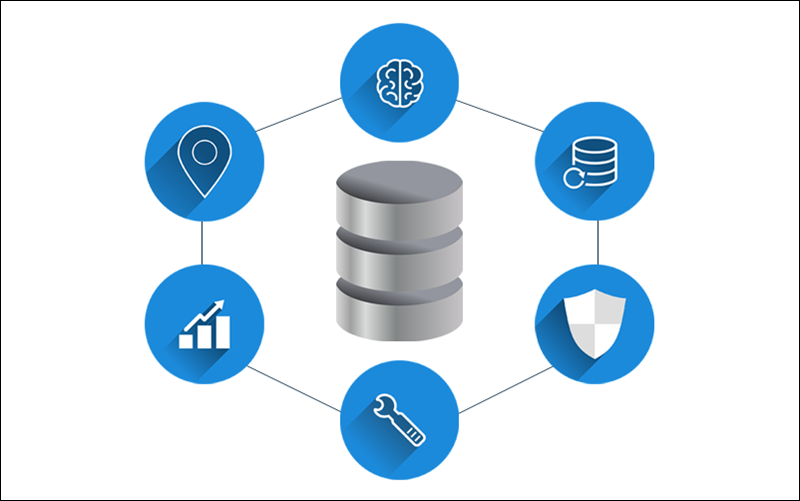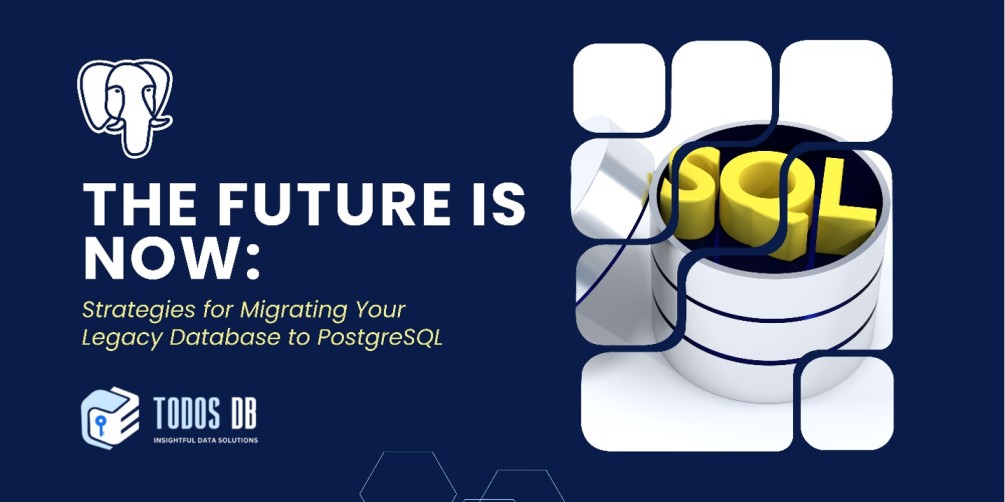
MongoDB, the leading NoSQL document database, has revolutionized how businesses store and manage data. Its flexible schema, scalability, and powerful querying capabilities make it a perfect fit for a wide range of modern applications.
At Todos DB, a leading database services company, we understand the unique challenges businesses face in the digital age. In this article, we’ll explore some of the most practical use cases of MongoDB, highlighting how it can empower businesses to:
1. Drive Innovation with Mobile and Real-Time Applications:
The exponential growth of mobile applications demands a database that can handle high volumes of concurrent requests and frequent data updates. Traditional relational databases (RDBMS) often struggle with these demands due to their rigid schema and reliance on joins. MongoDB’s schemaless architecture eliminates the need for predefined schemas, allowing developers to store data in a flexible and dynamic format. This flexibility is crucial for mobile apps that constantly evolve and incorporate new features. Additionally, MongoDB’s rich query functionality empowers developers to efficiently retrieve and manipulate data, even when dealing with complex queries. This translates to faster development cycles and a more responsive user experience for mobile applications.

Beyond Mobile Apps: Real-Time Analytics and Engagement
The benefits of MongoDB extend beyond traditional mobile applications. Its real-time capabilities make it ideal for building dynamic web applications that require constant data updates. Features like live chat, social media feeds, and personalized recommendations all rely on real-time data access. MongoDB’s ability to store and query data in real-time allows businesses to create engaging and interactive web experiences for their users. Furthermore, MongoDB integrates seamlessly with various real-time analytics tools, enabling businesses to gain insights from their data as it streams in. This allows for faster decision-making and proactive responses to customer behavior and market trends.
2. Manage Complex Product Information:
E-commerce businesses and organizations with vast product catalogs often struggle with the limitations of RDBMS. Products can have varying attributes, nested data structures, and rich media content. Traditional databases require complex schema design to accommodate this variety, leading to challenges in data maintenance and scalability. MongoDB’s flexible schema eliminates these issues. It allows businesses to store product data in its natural format, including text descriptions, images, videos, specifications, and even customer reviews. This simplifies data management and streamlines product information updates. Additionally, MongoDB’s powerful querying capabilities enable businesses to efficiently search and filter product data based on various criteria, leading to a more personalized shopping experience for customers.
3. Gain Insights from Diverse Data Sources: The Internet of Things (IoT) and Beyond

The Internet of Things (IoT) has ushered in an era of data explosion. Sensor networks and connected devices generate massive amounts of unstructured data, often in real-time. Traditional databases struggle to store and analyze this diverse data due to their structured format. MongoDB’s ability to store data in its native JSON format makes it perfect for IoT applications. Sensor data, including temperature readings, machine logs, and user activity, can be easily ingested and analyzed within MongoDB. Combined with its scalability, MongoDB empowers businesses to gather real-time insights from their connected devices and optimize operations. This can lead to predictive maintenance, improved resource allocation, and the development of entirely new data-driven products and services.
4. Deliver Superior Customer Experiences: Personalization at Scale
In today’s data-driven world, personalization is key to customer satisfaction. Customers expect businesses to understand their needs and preferences and tailor their interactions accordingly. Traditional databases often struggle to handle the complex customer data required for effective personalization. MongoDB’s ability to store a wide range of customer data, including purchase history, browsing behavior, social media interactions, and even sentiment analysis, allows businesses to create a 360-degree view of their customers. This rich customer data can then be used to personalize marketing campaigns, product recommendations, and overall customer interactions. For example, e-commerce platforms can use MongoDB to recommend products based on a customer’s past purchases and browsing behavior. This level of personalization leads to increased customer satisfaction, improved conversion rates, and higher customer lifetime value.
5. Simplify Content Management Systems (CMS): Building Flexible and Scalable Platforms

For content-heavy websites and applications, MongoDB provides a scalable and flexible solution. Traditional CMS platforms built on RDBMS often struggle to handle the ever-growing volume and complexity of content, including text, images, videos, and interactive elements. MongoDB’s ability to store unstructured content in its native format makes it ideal for managing complex content structures. Websites with frequently updated content, such as news portals or e-learning platforms, can benefit tremendously from MongoDB’s flexibility. Additionally, MongoDB’s ease of use simplifies development and maintenance of CMS platforms. Developers can focus on building innovative content features and functionalities instead of wrestling with complex database schema design.
Beyond Content Management: Unleashing Innovation with MongoDB
MongoDB’s impact on CMS goes beyond simplifying data storage and retrieval. Its flexibility empowers developers to build innovative features and functionalities within the CMS platform. Here are some examples:
- Personalized Content Delivery: By leveraging MongoDB’s ability to store user data alongside content, CMS platforms can personalize content delivery for individual users. This can be based on user preferences, browsing behavior, or past interactions. For example, an e-commerce platform can use MongoDB to recommend products to users based on their purchase history.
- Real-Time Collaboration: MongoDB’s scalability and real-time capabilities enable the development of collaborative content creation features within the CMS. Multiple editors can work on the same content piece simultaneously, with updates reflected instantly for all users. This streamlines content creation workflows and fosters greater collaboration within teams.
- Omnichannel Content Management: In today’s multi-device world, content needs to be delivered seamlessly across various platforms. MongoDB’s flexibility allows CMS platforms to manage content for websites, mobile apps, social media, and other digital touchpoints. Content creators can manage and publish content once, ensuring consistency across all channels.
Conclusion: A Modern CMS Foundation with MongoDB
By choosing MongoDB as the underlying database for your CMS, you gain a foundation for a scalable, flexible, and future-proof content management system. This empowers you to create engaging content experiences, streamline workflows, and deliver content efficiently across all channels. Partnering with a trusted database services company like Todos DB ensures you leverage the full potential of MongoDB and unlock a world of possibilities for your content management needs.

